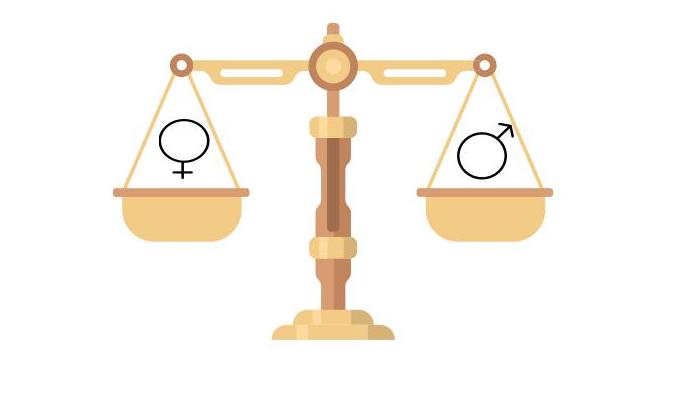Defining the “f” word: feminism stands for equal rights
February 10, 2016
Feminism is defined by Webster’s Dictionary as “the belief that men and women should have equal rights and opportunities.” Despite its pure intents, the “F” word has gained so much negative stigma over the years that being a feminist is often considered to be a bad thing.
Women are repeatedly stereotyped as caregivers. They are taught to care for others: their children, their husbands. On the other hand, men are often encouraged to do things that better themselves, like pursue a career. Men are viewed as leaders. About 50 percent of Americans are female, but only 20 percent of America’s congress members are female. We’ve had 43 presidents, but none of them have been female.
The social norms which label women as caregivers and men as breadwinners can hurt people of either sex. It’s bad for women who would like to build their intellectual strengths, and men who enjoy caring for children or spouses instead of working. Feminists strive to lessen the stereotypes and encourage people to choose their careers based on interest, not gender.
Here at Algonquin, we have a group of feminist students called the “Shehawks.” They hosted a bake sale at which they charged male students more than female students. This outraged students, male and female alike. It makes sense that people were mad. Why should someone need to pay more for the same product based on the gender they were born? But what people forget is that, in a sense, women need to deal with a similar scenario their whole lives.
The Shehawks drew attention to the pay gap between men and women in America. Women are often paid less than men. On average, women earn about $0.79 for every $1.00 a male earns in the same position.
So while men had to pay more than women at one school bake sale, women earn less pay than men their whole lives.
A study at the University of Buffalo in New York found a rise in the amount of sexualized women in the media over the last several decades. The amount of sexualized men in the media has also increased, but the study found that the growth is not nearly as significant. More than half of women in the media are hypersexualized, while only about 10 percent of men in the media are.
The problem with this is not that the women look “sexy.” It is okay to want to look nice. The real issue lies in the fact that the woman’s value becomes linked to her physical appearance, instead of her ideas, actions, and achievements. When women are portrayed in this way in the media, it can make girls feel as though appearances are more important than ambitions.
The inaccurate representation of women’s physical looks hurts people of all genders. It sets people’s expectations of females’ appearance at unrealistic levels. For women, this can cause an increase in eating disorders and low self esteem. For men, it has also been found to cause an increase in low self esteem, and can actually decrease sexual pleasure because of unrealistic expectations. Feminists are fighting to get women proper representation in the media, in order to help lessen the issues caused by over-sexualizing women, and to encourage girls to focus on being smarter, stronger, and kinder, rather than being prettier.
That’s not to say that to be a good feminist, you need to stop shaving your legs, wearing bras, and doing your makeup. Feminism isn’t made to discourage girls from doing things that make them feel beautiful. The true purpose is to acknowledge that women have are capable of much more than just cooking, cleaning, and looking good. Because they are. Women can achieve great things when given the proper tools.
Without feminism, women worldwide would be deprived of basic rights. Before feminism, women in America couldn’t vote, work, own property, get an education, or even just wear pants. In fact, in some countries, such as Yemen, women still can’t do those things. We need feminism in order to help our fellow humans worldwide achieve equal rights.
Feminism has earned us many basic equalities that we take for granted today. For example, there used to be no sports teams for girls. When we finally allowed girls to play sports, there was only one uniform for every team. So, the same kilt and shirt set was passed from the field hockey girls, to cross country runners, the basketball players, and all the other female athletes.
Thanks to feminists of the past, we’ve come a long way. Now, in 2016, it is our job to continue to educate ourselves, and those around us, about why feminism is still relevant and important. Because these problems are real, and they are important. Anti-feminism is a growing trend, but all it does is hurt people. People of all genders, who should be working to build a better world, instead waste energy hating on people who are only trying to help make the world a better place for everyone.










